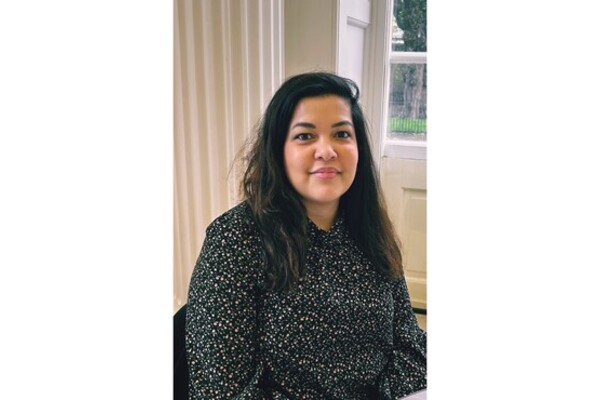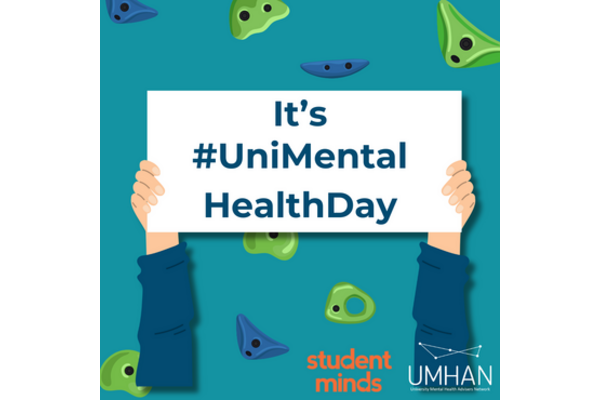Name
Cathy Bleach
Job title
Specialist Mentor NMH
Employer
University of Brighton
How long have you worked in student mental health?
Since 2012/13
How long have you been in your current role?
Since the start!
Can you outline your career and how you got to where you are today?
Gosh! Throw another log on the fire. I started out in healthcare, but eventually moved towards social work via housing law/support. As a social worker I began working part time to work as a mentor as well. I eventually left social work and now work (very) part time as a counsellor and specialist mentor.
How does your experience and training help you to do your job well?
For me, it’s about being alongside the student as they learn and develop, rather than being directive or seen as an ‘expert’. It’s a process where we identify gains along the way, ensuring the person recognises their independence and feels ready to leave by the end of their course.
It’s important to work together as a wider team and I’m blessed with amazing colleagues and supervision. There’s always something new coming along, and new innovations: having strong support is vital when you work with people.
As a counsellor I use my skills to support people, I do not offer counselling but certainly there are many common elements such as listening, empathy, challenging appropriately and encouraging someone to find their own answers.
I have qualifications from my work with a drug and alcohol rehabilitation service, in change management, NLP and hypnotherapy and use these to support students to think about relaxation or meditation. I can direct people to useful apps or resources if they are interested in this.
From my social work days, I can often spot problems before they really get started and refer people to the appropriate part of the university – the housing team, counselling, the union, and I can understand a policy at 20 paces!
I love learning and I believe I communicate this to students and can offer support to remember why they chose their course. I’m usually on a course myself, so can understand and empathise!
Can you briefly explain your day-to-day responsibilities?
I support students to manage disabilities or health conditions while studying in higher education. I am non-directive and treat each person as unique since we are all affected by our circumstances in different ways. I assist with time management, organisation, self-care, settling into university, managing relationships, just about anything where the person finds blocks to progress at university.
We often begin by thinking about what support the student would like, what help the assessment suggests would be useful, and then we draw up a plan. We regularly review this and reset our plan if we need to.
I do not like goals! I prefer to see the course as a process of learning and growing and, while I’ll work to goals and have even developed a handout around this, I try to help some students to see things differently if this reduces stress.
I refer on where necessary, recognising the specialisms of other teams and individuals. I am aware of the need to recognise safeguarding, and discrimination issues.
What’s helped you to stay in your role?
I love it! I also have good supervision from an excellent, qualified person who also mentors students so has relevant experience of current problems students face.
Until relatively recently I was counted as a member of staff and could do modules with a fee waiver. This then stopped, so I have had to reduce the number of university in-house students I support to take more private clients and cover my costs! This is sad as my learning benefits students, but my private counselling and mentoring clients have benefited - I’ve now completed a BACP approved qualification to become an online therapist. I plan to start a PhD at some point and now I can look further afield as I’m not bound by price.
I love the camaraderie of fellow mentors and student support workers, as we tend to be collaborative rather than in competition with each other. This is more my style. I’d like to help others and I enjoy knowing I’ve got support.
What part has UMHAN played in this?
I joined a while ago, precisely for the collaborative aspects of the organisation. I have used the resources section, have been to meetings when they do not clash with my regular working days. The emails which include new information about changes to the DSA and SFE rules are invaluable and often much faster than the ‘grapevine’. This level of contact really helps me to feel less isolated and alerts me to new ideas or approaches.
When I come across new information, I always consider whether it would be helpful to my colleagues. Sharing ideas always improves the situation for both mentors and students. I’ve noticed that UMHAN puts forward arguments about best practice to DSA and stands up for students and workers within the system.
Since many of us are on zero hours contracts, which I like despite the low pay, I often feel we don’t count, and so UMHAN needs to fight our corner!
What’s your favourite part of your role?
Seeing someone achieve their qualifications and move on.
What has changed in student mental health since you started your role?
Good and bad.
Good: Listening to people with mental wellbeing issues, learning challenges and those with multiple difficulties. Learning from people with personal experience of disability, discrimination, or disadvantage.
Lots more spreading of responsibility, lots more sharing the load. Universities showing a real concern for student mental wellbeing and taking on learning when there are issues.
There are clearer systems in place and much clearer support – students know who to contact on campus if they are in difficulties. Lots of peer support available, awareness raising. I think there have been lots of improvements and I that people can now get support whether they want to do this anonymously, as part of a group, with a professional or talking to a fellow student. I’ve seen huge improvements in some areas.
Not so good: Funding! In the past I have dealt with tutors who do not understand and are too busy to find out the needs of individuals. This can leave students unable to get support; they then must fight for assistance when they need to study like any other student. Tutors or other staff have my sympathy, it may be a lack of staff and not necessarily individual discrimination.
The future? Government changes to allow students to ‘sign’ using email confirmation is great for distance working. There are still illogical rules – for example, it is not possible to register as working online with students anywhere in the country despite my being qualified to do this with students who do not/cannot meet in person! I can only register in a geographical area where I am prepared to travel regularly to see the client – even if they do not want to be seen.
What do you think are the biggest remaining challenges?
Too many student deaths.
DSA being watered down so that people cannot access it, reducing rights, using free and less robust apps, reduction of eligibility may be looked for. The accessible university, while an excellent approach to inclusivity, will not cater for everyone, it never has.
DSA could come up to date and allow us to submit online.
Students who want to work exclusively online with their support should be able to do this, not just in a pandemic but generally since it allows them to organise themselves, plan their time, and can create a further layer of confidentiality if they choose not to tell others they are meeting with someone.
Further reduction of mental health as a stigma is a constant as we take new people every year.
Finally:
students who feel isolated or alone.
students who feel under pressure to perform well due to fees.
Financial hardship and its impact on mental health and study.
These issues are not going to go away but we must not accept them as a ‘normal’ level of risk – this is not helpful.
Have you got any feedback from students that you could share with us?
I have been told by some students that they would like to stay online as this has made life easier for them in managing their workload.
Students have consistently said they found mentoring to be so helpful during the pandemic in helping to adapt their usual strategies for coping with mental wellbeing to the lockdown situation.
Overall the university I work for has really given students excellent support and information – if anyone was worried, there was usually someone to talk to.









